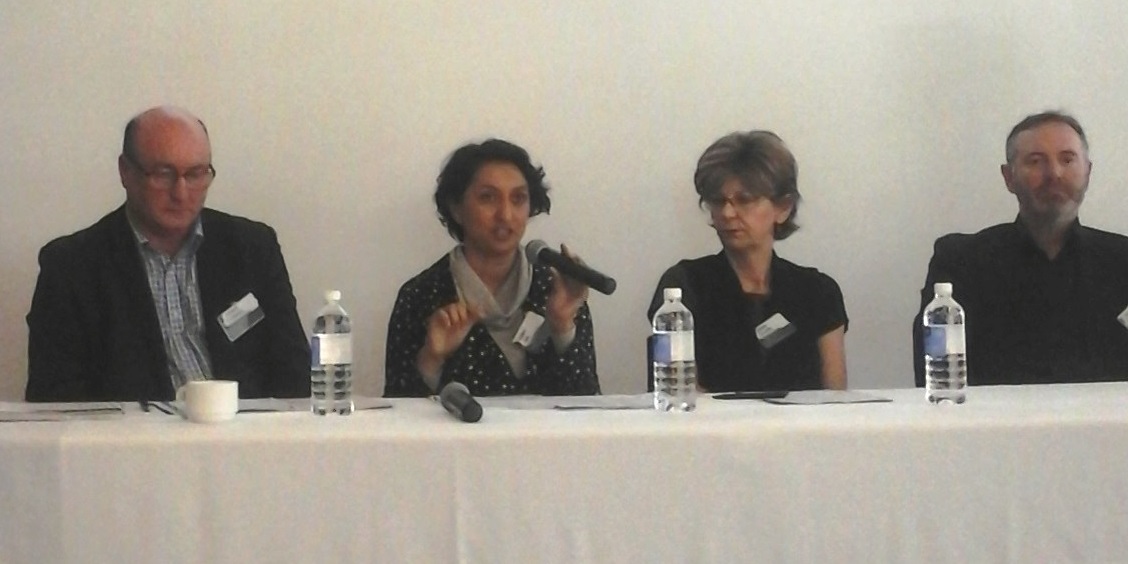
Panel-2 members: Brendan Fitzgerald, Dr Manisha Amin, Deborah Fullwood and Professor Gerard Goggin.
Media Access Australia digitally recorded commentary from the CEO, Dr Manisha Amin, on the future direction of inclusion, along with her responses to questions from the floor and the event facilitator. Read a summary article and listen to a 15-minute podcast featuring Manisha.
Read the transcript of Dr Manisha Amin's commentary and Q&A responses.
The event attracted a capacity crowd at the venue (the Sydney Maritime Museum conference room) with the first panel discussion looking at the challenges and impacts of breaking down barriers to participation. It featured panellists Cecily Michaels (Leep), Pino Migliorino (Cultural Perspectives Group), Rangan Srikhanta (One Education), and Teresa Corbin (ACCAN). The debate opened up a series of fresh perspectives on current barriers, as well as emerging barriers, that impact on the level of inclusion individuals with disability can experience.
The second panel was centred around the future of inclusion and accessibility as the digital world merges with the physical world. It comprised Brendan Fitzgerald (InfoXchange Aust), Dr Manisha Amin (Media Access Australia), Deborah Fullwood (National Relay Service), and Professor Gerard Goggin of the University of Sydney.
This second panel focussed on current and future technology developments that create, or will create, opportunities for increased digital inclusion for people with disability, and the broader community as well. It also covered how people with disability should be fundamentally involved in the production of new technology, new experiences and communications.
The discussions highlighted community initiatives that ensure the technology access gap for people with disability is being addressed, including MAA’s grant-funded Affordable Access project – which provides information for students, seniors, parents & carers, and those in the workforce, on low-price tech options, and also provides a range of helpful free downloadable resources.
Top of page

